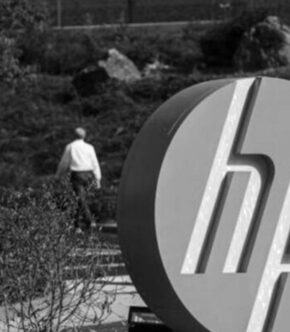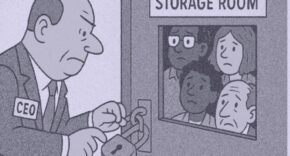HP has announced that it will cut between 4,000 and 6,000 jobs around the world by fiscal 2028 as it pushes deeper into artificial intelligence. The company is calling this a plan to streamline operations and boost productivity, but the message is clear. HP believes AI will take over large parts of the work once done by people.
CEO Enrique Lores said the goal is to speed up product development, improve customer satisfaction, and make internal operations more efficient. This shift toward automation is expected to create one billion dollars in savings over three years. HP already cut another 1,000 to 2,000 jobs in February as part of an earlier restructuring plan.
The layoffs will fall mainly on teams that work in product development, internal operations, and customer support. These are the exact types of roles that many companies across the tech industry believe AI can replace. HP has not given a schedule for when each wave of cuts will arrive, but analysts estimate the total will represent seven to ten percent of the company’s workforce.
Lores said the company will treat outgoing employees with care and respect, but the larger trend is difficult to ignore. Tech companies are increasingly replacing workers with AI systems that never sleep, never take vacation, and can work at massive scale.
Why HP Says It Needs This Shift
Demand for AI enabled PCs is rising quickly. In the quarter ending October 31, more than 30 percent of HP’s shipments included AI features. This external shift is pushing HP to embed AI into everything it does, from design to service to manufacturing.
At the same time, the company is facing pressure from global memory chip shortages. The price of dynamic random access memory and NAND chips has surged because of increased demand from data centers building out AI infrastructure. Morgan Stanley analysts warned that companies like HP, Dell, and Acer will feel the squeeze. HP expects the impact to hit hardest in the second half of fiscal 2026, which is one reason the company is qualifying lower cost suppliers, reducing memory configurations, and taking pricing actions.
HP reported fourth quarter revenue of 14.64 billion dollars, slightly above estimates. But the company’s outlook has disappointed investors. HP expects fiscal 2026 adjusted profit per share to fall between 2.90 and 3.20 dollars, below analyst predictions. Shares fell more than five percent after the announcement.
First quarter earnings are also expected to come in weaker than hoped. The midpoint of HP’s estimate falls below Wall Street’s forecast, signaling a tougher road ahead. This pressure adds to the urgency behind HP’s AI strategy. The company plans to spend 650 million dollars on restructuring, with 250 million spent next year, as it attempts to transform itself.
Analysts Say This Is Part of a Bigger Trend
Across the tech sector, companies are replacing workers with AI. Some companies have seen strong results. Others are discovering the risks of what experts call AI debt, where rushed implementation of advanced systems leads to new inefficiencies and unexpected costs.
Even so, the movement is unmistakable. Microsoft has released new AI agent tools designed to automate large parts of business operations. Other companies have already built teams around AI rather than hiring new human workers. HP is now joining this trend openly, and the company says its early AI pilot programs prove that the technology can perform at a high level.
Many people have criticized HP for announcing mass layoffs during Thanksgiving week. Employees were preparing for the holiday season when the news arrived, and the timing has added to the backlash. Some wonder if US tariffs played a role, but HP has not linked the layoffs to tariffs in any statement.
Still, the response has been strong because the job market remains tight and layoffs across industries have been rising for months. Announcing major cuts at the same moment the company promotes aggressive investment in AI has fueled the perception that this restructuring is less about survival and more about replacing workers with automated systems.
HP’s transition is part of a growing pattern where companies turn to AI when profits weaken or competition increases. Instead of hiring more workers, companies now see AI as the tool that can do more with less expense. HP captured this idea directly when Lores said the company has a significant opportunity to embed AI in everything it does and transform the business.
As device makers, software firms, and service companies race to adopt AI, layoffs like these may become the default response to economic pressure. HP’s decision to remove up to 6,000 employees while ramping up AI is not just another restructuring. It is a signal of what is coming next.











